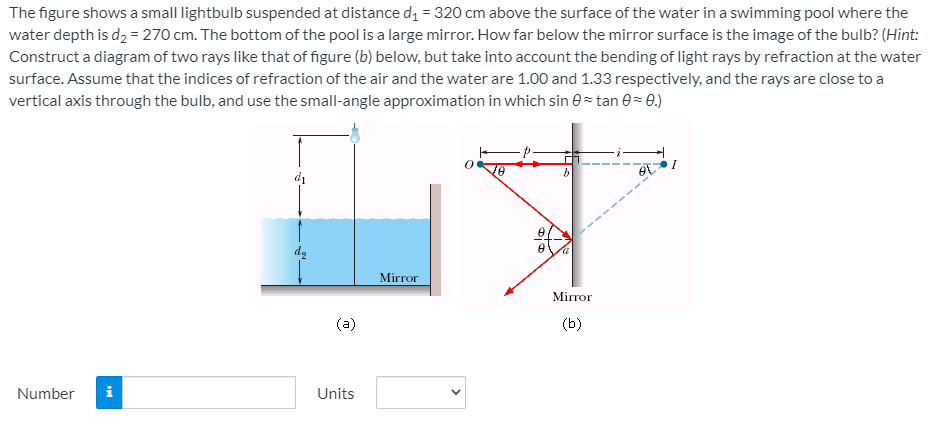at distance d, = 320 cm above the surface of the water in a swimming pool where the pool is a large mirror. How far below the mirror surface is the image of the bulb? (Hint: ure (b) below, but take into account the bending of light rays by refraction at the water of the air and the water are 1.00 and 1.33 respectively, and the rays are close to a ll-angle approximation in which sin e tan e= 0.)
Refraction of Light
Refraction is a change in the direction of light rays when they travel from one medium to another. It is the bending of light when it goes through different media.
Angle of Refraction
Light is considered by many scientists to have dual nature, both particle nature and wave nature. First, Particle nature is one in which we consider a stream of packets of energy called photons. Second, Wave nature is considering light as electromagnetic radiation whereas part of it is perceived by humans. Visible spectrum defined by humans lies in a range of 400 to 700 nm wavelengths.
Index of Refraction of Diamond
Diamond, the world’s hardest naturally occurring material and mineral known, is a solid form of the element carbon. The atoms are arranged in a crystal structure called diamond cubic. They exist in a huge variety of colours. Also, they are one of the best conductors of heat and have a very high melting point.

Step by step
Solved in 2 steps with 2 images









